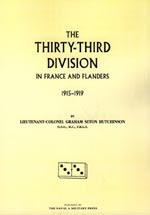
Captain Sir John Edward Fowler of the 4th Battalion, Seaforth Highlanders, was 30 years old when he was killed in action near Richebourg L'Avoue on the 22nd June 1915. His body was repatriated and he was buried with military honours in the Foich burial ground, a private cemetery on the Fowler's Bramore estate near Garve in Scotland. The Commonwealth war Graves Commission notes that Sir John was 31 years old, "3rd Bart. Son of Sir John Arthur Fowler, 2nd Bart. and Lady Fowler, of Inverbroom House, Braemore, Garve. His brother Alan also fell."
Alan Arthur Fowler had been killed in action two months earlier but unlike his brother he has no known grave and is commemorated on the Menin Gate at Ypres.
There is a detailed an interesting thread on the Fowler brothers on the Scottish War Memorials Project forum. Click Here.
The photograph of Sir John's funeral, and the text which follows are taken from the am baile site.
Captain Sir John Fowler Bt, of Braemore, was the son of Sir John Arthur Fowler Bt, and grandson of Sir John Fowler, the 1st Baronet, who was honoured for his work as Engineer in Chief of the Forth Bridge. Captain Sir John Fowler, the 3rd Baronet, joined the Seaforth Highlanders in 1904, and became Adjutant of the 4th (Ross-shire) Territorial Battalion in 1913. He went to France with the 4th Seaforth in 1914...
His mother Lady Fowler kept very full records of her sons and of the 4th (Territorial) Battalion Seaforth Highlanders. Her beautiful albums recording the Battalion's service in France are today in the Regimental Museum of The Highlanders at Fort George. Together with Mrs JW Fraser of Leckmelm, she also published in 1921 'Records of the Men of Lochbroom 1914-1918', a book of tributes to all the local men who died in the service of their country in World War I.
Obituaries and portrait photographs of the brothers also appear in the book, Harrow Memorials of the The Great War, Volume II. Sir John's obituary reads:
Elder brother of Captain Alan Fowler, whose record appears on the preceding page, and eldest son of Sir John Arthur Fowler, Bart., of Braemore, Ross-shire, N.B., whom he succeeded as third baronet in 1899, and of Alice Janet Clive, daughter of the late Sir Edward Clive Bayley, K. C.S.I.
Royal Military College, Sandhurst, 1903.
Captain Sir John Fowler joined the 2nd Seaforths in 1904 ; for three years he acted as Assistant Adjutant, and as Officer in charge of the Brigade Machine Guns. He held a Commission in the Royal Company of Archers and acted as Aide-de-Camp to the Lord High Commissioner of the Church of Scotland at Holyrood in 1907 and 1908. At the outbreak of the War he was seconded as Adjutant of the 4th Battalion, the first Highland Territorial Battalion selected for service in France. After two months' training at Bedford they went to the Front in November, 1914, taking part in an engagement at Festubert in the following month, and in the Battles of Neuve Chapelle and Aubers Ridge. Captain Fowler was killed in the trenches on June 22nd, 1915, near Richebourg I'Avoue. He was mentioned in Sir John French's Despatch of November, 1915, "for gallant and distinguished conduct in the field." The official expression of " the King's high appreciation of these services" was received by his family on March 28th, 1916.
Brigadier-General Ross, C.B., wrote: "He was one of the very best young Officers I have ever met, and an example to all others. It was mainly due to his wonderful influence that the Battalion did so well."
The Hon. E. O. Campbell, Adjutant of the 2nd Seaforths, wrote: "We shall always miss Jack: one of the best and kindest of men, and always thoroughly beloved by every one in the Regiment."
Lieut.-Colonel Cuthbert, C.M.G., D.S.O., Commanding 4th Seaforths, wrote: "He lived a soldier's life, ever ready to do his duty, and one always knew how well that duty would be done. He gave us all confidence — confidence that otherwise we could never have had. He has died a soldier's death, and we are the poorer by a very gallant gentleman and capable Officer."
Sergeant-Major, later Lieutenant, Glass, wrote: "He was the guide, adviser, and helpmate of every individual in the Battalion, and we miss him terribly. Defeat could not have shaken us more."
At the going down of the sun, and in the morning, WE WILL REMEMBER THEM.
Sources:
Ancestry (MIC)
Soldiers Died in The Great War
Army Service Numbers
The Commonwealth War Graves Commission








No comments:
Post a Comment